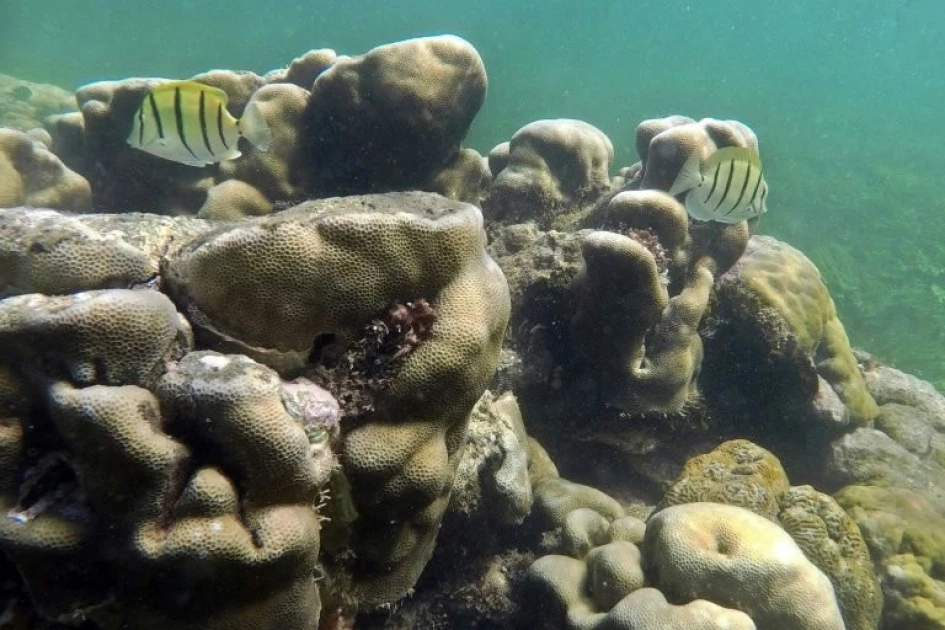Lamu: Corals reefs are dying, but no one is 'mourning'

Photo/Courtesy

Audio By Vocalize
The death of coral reefs, also known as marine forest, is already leaving millions of sea creatures ‘homeless’.
It is on these soft undersea rocks that fish find time to breed, and grown their population.
Did you know that corals are a source of food for humans, especially those who depend on seafood? Well, now you do.
In Asia alone, one billion people depend on seafood, and corals are used to make medicine apart from being an attraction for tourism.
As the coral reef die, it leads to dwindling catch – affecting livelihoods of millions of fishermen.
“Fishermen will not be able to get abundant fish catch if coral reefs continue to deteriorate and die. Such deterioration could lead to sea erosion which will affect houses and cities near the sea,” said the chairman of coral reef experts in the United Nations on the preservation of Environment David Obura.
The panel of representatives of various governments on climate change in the national organization of the United Nations Environment Programme (UNEP) has said that coral reefs will be lost around the world by up to 90 percent.
It’s a catastrophe that is not only confined to Kenyan waters of the Indian ocean.
UNEP, in its report, has shown that 25 percent to 50 percent of corals in all oceans in the world have been destroyed and the remaining 60 percent are in danger of extinction.
The coral reefs will lose their colour in the next 50 years.
Meanwhile, the increase in temperature in the world is cooking up sea water, making corals reefs to fade and turn pale.
“If temperatures rise by one and a half degrees, we could lose a quarter of the corals in the world, and if the temperature rise by two degrees, then 99 percent of the corals will die all over the world,” explained Obura.
The seas that are listed to be at high risk of losing their corals very fast are the Southeast Asian Sea, the Atlantic Ocean, the Indian Ocean, Middle East and the Pacific Ocean. The United Nations Educational, Scientific and Cultural Organization (UNESCO) also predicts that by the year 2040 there will be a 25% increase in corals.
Founder and head of the tourism and coral group in Lamu Island, Fahadri Lajai says they used to earn about Ksh 100 million per year, but currently it’s hard to make even one million.
“In Lamu we are lucky, we used to be proud of having coral which are rare to find in other places, so fishermen's income has decreased a lot and tourist organizations have lost a big chunk of their income due to loss of these corals,” said Lajai.
Human activities such as the construction of hotels and villas on the seashore around the world have become a great threat to marine life due to the use of various machines to break rocks for construction and directing waste into the sea.
“We did our research and we found out that the corals have suffered a lot. The construction of Lamu port entailed huge excavation of sand. The sand they dug up has completely killed the corals and all our coral projects for tourist attraction are shut down,” said Lajai.
Shekhe Mzeje Mihaji, a seasoned fisherman and a leader of a marine conservation group in Lamu, says huge construction activities along and inside the show have been polluting the sea and contributing to the loss of marine ecosystem.
“Excavation of sea sand takes place from the bottom of the sea that is about 5 percent or 6 percent meters deep, now this sand if toxic, it pollutes the air, if this sand comes into contact with the corals, the corals begin to disintegrate, turn white and die,” demonstrated Mihaji.
Similarly, the destruction of marine environment has also increased dangerous chemicals in the sea that contribute to killing corals, and various countries in the world including the Philippines direct dirty water into the sea. Big luxury hotels located on the coast direct waste water into the sea, besides that, experts say the use of pesticides in fishing has also increased the deterioration of corals.
Some fishermen are reported to be using Cyanide to spray it in corals to catch rare and highly marketable fish in the world. Excessive fishing also affects the marine.
Environmental pollution in major cities has contributed to the deterioration of the environment in the sea, industrial pollution, plastics, agricultural chemicals and oil have become toxic to corals and have been dumped directly into the sea or brought into the sea by river currents, thus causing an increase in nitrogen gas that causes marine loss due to algae excess, the garbage causes darkness and thus blocks the light needed for the life of corals.
To make it worse if mangroves are cut this acts as a catalyst to the loss of corals, because mangroves have a role of controlling garbage along the seashore.
Experts say there is no way to bring back the lost corals; what can be done now is to protect and save the remaining corals.
One way of doing this is by educating the mass about the importance of corals and to ban illegal fishing that kills marine life.
“We can reduce further damage by making sure we don't produce a lot of carbon dioxide gas, we don't overfish, we reduce construction on the beaches. Government, private organizations and marine groups should enhance policies and means to protect corals, by doing these in 30 to 50 years we will achieve positive change,” explained Obura.
Lajai says, “We can sink a big ship; it will settle beneath the sea bed, corals will germinate over a period of ten years.”
Scientists are currently working to find ways to grow corals in nurseries and then replant them in damaged areas.


Leave a Comment